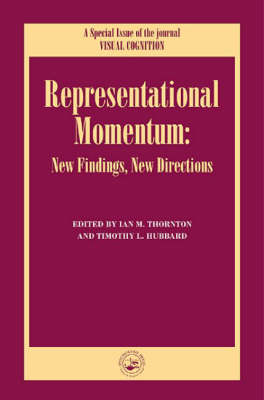Special Issues of Visual Cognition
1 total work
Representational Momentum
Published 14 February 2002
Visual experience of the world is characterised as much by movement and change as it is by permanence and stability. Understanding how the brain processes dynamic information poses major challenges for theories of cognition and perception. Are dynamic and static objects represented in the same way? How do we extract stability from dynamics? How can we successfully interact with moving objects and overcome the known neural delays of our sensory systems?
Representational momentum - the tendency for observers to misremember the stopping point of a perceived event as being further ahead in the depicted direction of motion and/or change - has played an important role in attempts to address such questions. Research on representational momentum has given rise to the concept of "dynamic mental representations", helped popularise a range of methods for probing memory for visual objects and events, and inspired a broader consideration of anticipation and localisation during perception, cognition, and action.
This collection of papers brings together work from many of the leading experts in representational momentum research, and more generally, from the fields of object localization and dynamics. In addition to presenting new findings from behavioural and neuroimaging studies, this collection also includes several new attempts to link this area of work with broader issues in the perception and representation of dynamic objects.
Representational momentum - the tendency for observers to misremember the stopping point of a perceived event as being further ahead in the depicted direction of motion and/or change - has played an important role in attempts to address such questions. Research on representational momentum has given rise to the concept of "dynamic mental representations", helped popularise a range of methods for probing memory for visual objects and events, and inspired a broader consideration of anticipation and localisation during perception, cognition, and action.
This collection of papers brings together work from many of the leading experts in representational momentum research, and more generally, from the fields of object localization and dynamics. In addition to presenting new findings from behavioural and neuroimaging studies, this collection also includes several new attempts to link this area of work with broader issues in the perception and representation of dynamic objects.
